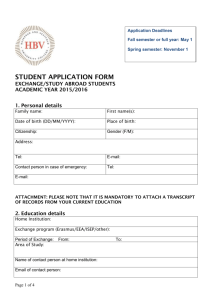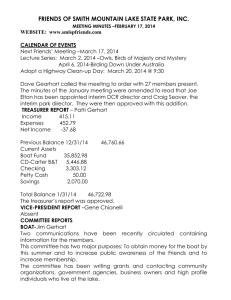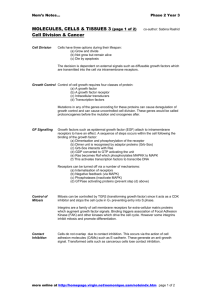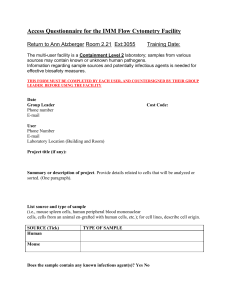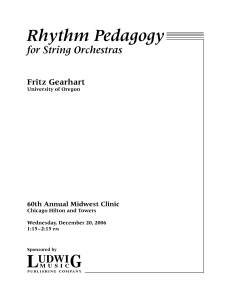From Outbreak to Doctorate: Tricia Gearhart, Ph.D.
advertisement
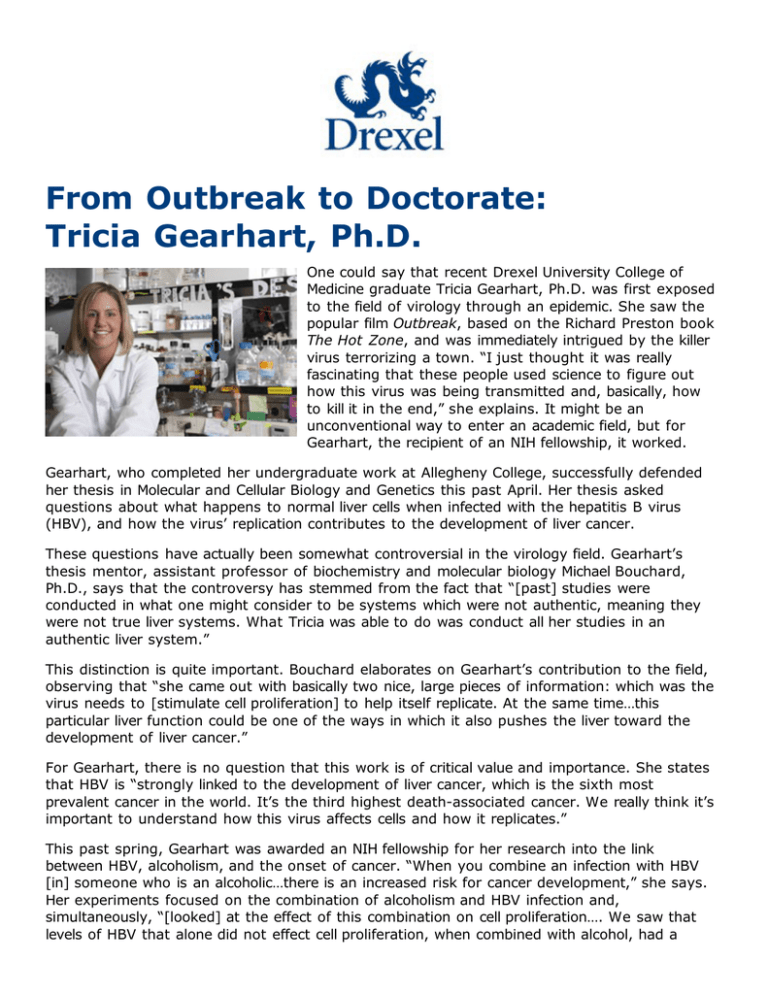
From Outbreak to Doctorate: Tricia Gearhart, Ph.D. One could say that recent Drexel University College of Medicine graduate Tricia Gearhart, Ph.D. was first exposed to the field of virology through an epidemic. She saw the popular film Outbreak, based on the Richard Preston book The Hot Zone, and was immediately intrigued by the killer virus terrorizing a town. “I just thought it was really fascinating that these people used science to figure out how this virus was being transmitted and, basically, how to kill it in the end,” she explains. It might be an unconventional way to enter an academic field, but for Gearhart, the recipient of an NIH fellowship, it worked. Gearhart, who completed her undergraduate work at Allegheny College, successfully defended her thesis in Molecular and Cellular Biology and Genetics this past April. Her thesis asked questions about what happens to normal liver cells when infected with the hepatitis B virus (HBV), and how the virus’ replication contributes to the development of liver cancer. These questions have actually been somewhat controversial in the virology field. Gearhart’s thesis mentor, assistant professor of biochemistry and molecular biology Michael Bouchard, Ph.D., says that the controversy has stemmed from the fact that “[past] studies were conducted in what one might consider to be systems which were not authentic, meaning they were not true liver systems. What Tricia was able to do was conduct all her studies in an authentic liver system.” This distinction is quite important. Bouchard elaborates on Gearhart’s contribution to the field, observing that “she came out with basically two nice, large pieces of information: which was the virus needs to [stimulate cell proliferation] to help itself replicate. At the same time…this particular liver function could be one of the ways in which it also pushes the liver toward the development of liver cancer.” For Gearhart, there is no question that this work is of critical value and importance. She states that HBV is “strongly linked to the development of liver cancer, which is the sixth most prevalent cancer in the world. It’s the third highest death-associated cancer. We really think it’s important to understand how this virus affects cells and how it replicates.” This past spring, Gearhart was awarded an NIH fellowship for her research into the link between HBV, alcoholism, and the onset of cancer. “When you combine an infection with HBV [in] someone who is an alcoholic…there is an increased risk for cancer development,” she says. Her experiments focused on the combination of alcoholism and HBV infection and, simultaneously, “[looked] at the effect of this combination on cell proliferation…. We saw that levels of HBV that alone did not effect cell proliferation, when combined with alcohol, had a synergistic effect on cell proliferation, which may contribute to cancer development because HBV is sensitizing the liver to the detrimental effects of alcohol and vice versa.” While the NIH fellowship crowns years of research at the College of Medicine, Gearhart has also had many other memorable moments and experiences along the way. With a gratified laugh she says, “The day all your experiments work” is something every scientist can appreciate. And it hasn’t been all work for her: for several years she was an enthusiastic member of Drexel’s graduate school dragon boat team. On a more serious note, she credits participating in her first conference as a key moment of her academic career. “The first big conference I ever went to, The International Meeting on the Biology of Hepatitis B Viruses, was in Rome, Italy…I think it was the first time you were able to fit in your own little bit of research and your focused project into the broad picture of what everybody’s doing on HBV…. You get the whole bigger picture of the field, and where you fit in, and how you’re helping to progress the field forward in a way.” Gearhart is quick to praise College of Medicine alumni for their involvement and outreach to current students. She says that their participation at Discovery Day, the seminar series, and the professional series is invaluable. “It’s really great to meet and talk to people that have been gone for a couple years and been out there…. I think how helpful they are to the students, they don’t even realize it. [Alumni] probably think, ‘Oh, they don’t care what we have to say. We’re old.’ But it’s really, really helpful to talk with someone who’s gone through it and understands even what those next five years are after you graduate. It’s really very, very helpful and I think sometimes [the alumni] don’t know that.” Now an alumna herself, Gearhart plans to pursue a postdoctoral fellowship once she concludes a few research endeavors this summer. Dr. Bouchard believes she has a bright future ahead of her. He says the College of Medicine faculty strives to impart three skills to future graduates: the ability to think scientifically, the ability to communicate that knowledge, and the ability to write well. “I think Tricia has really mastered all three of those,” he enthuses. © Copyright 2013 - Drexel - All Rights Reserved.

